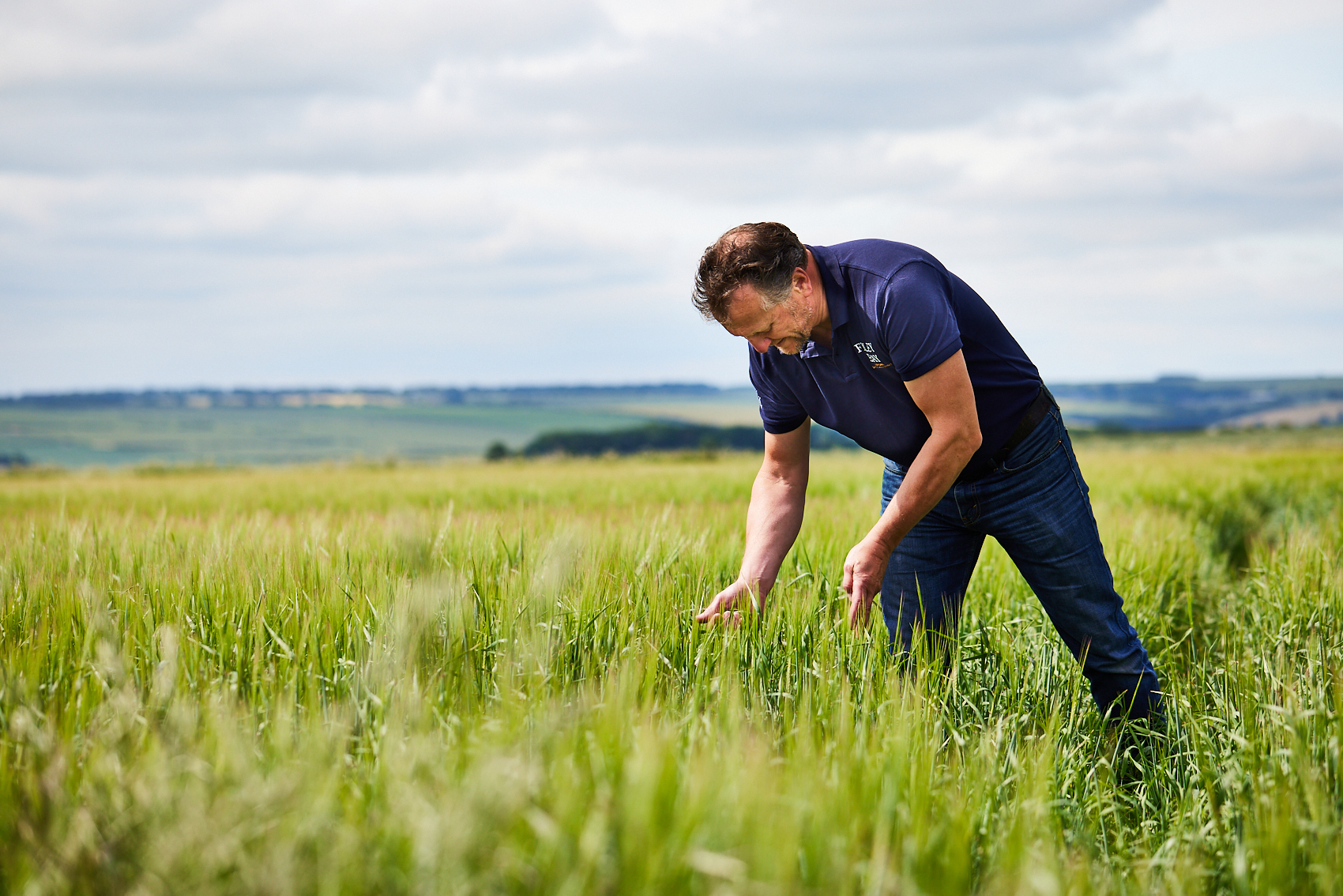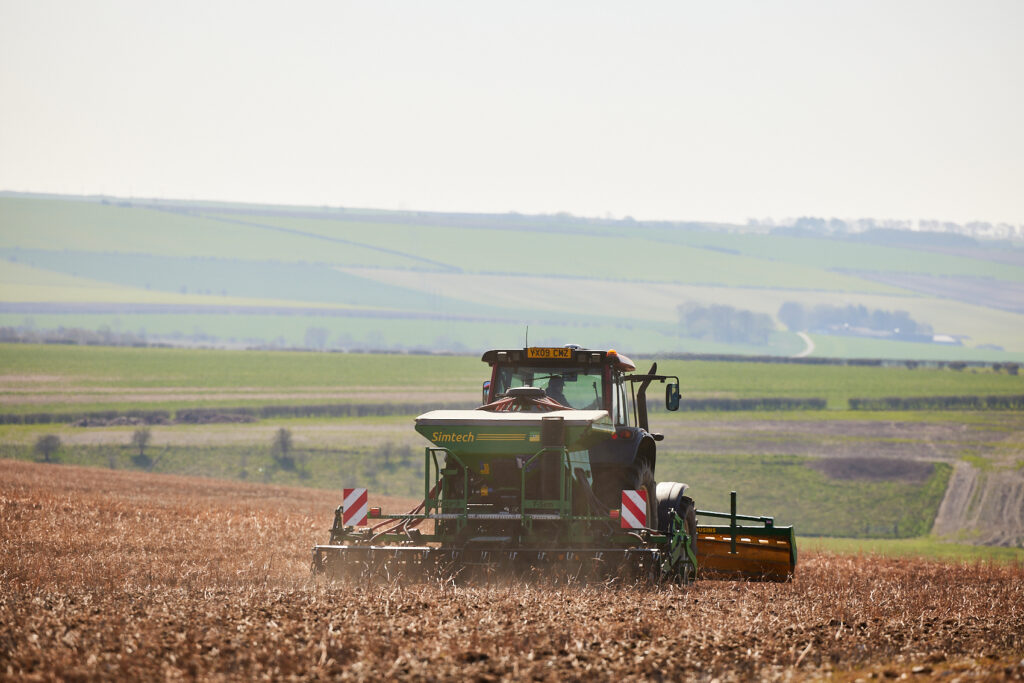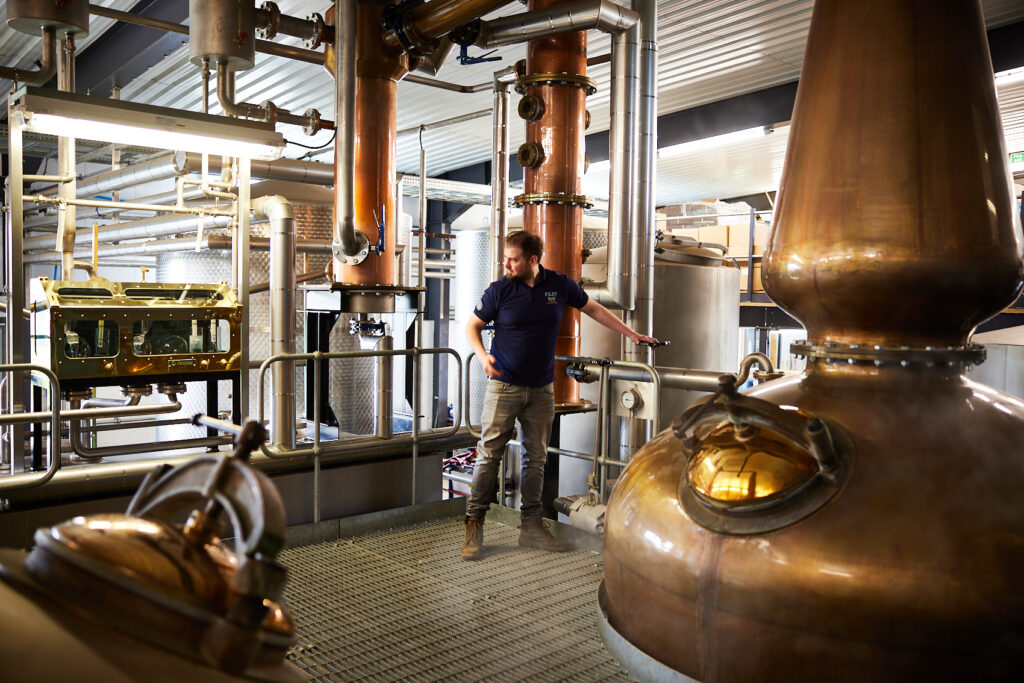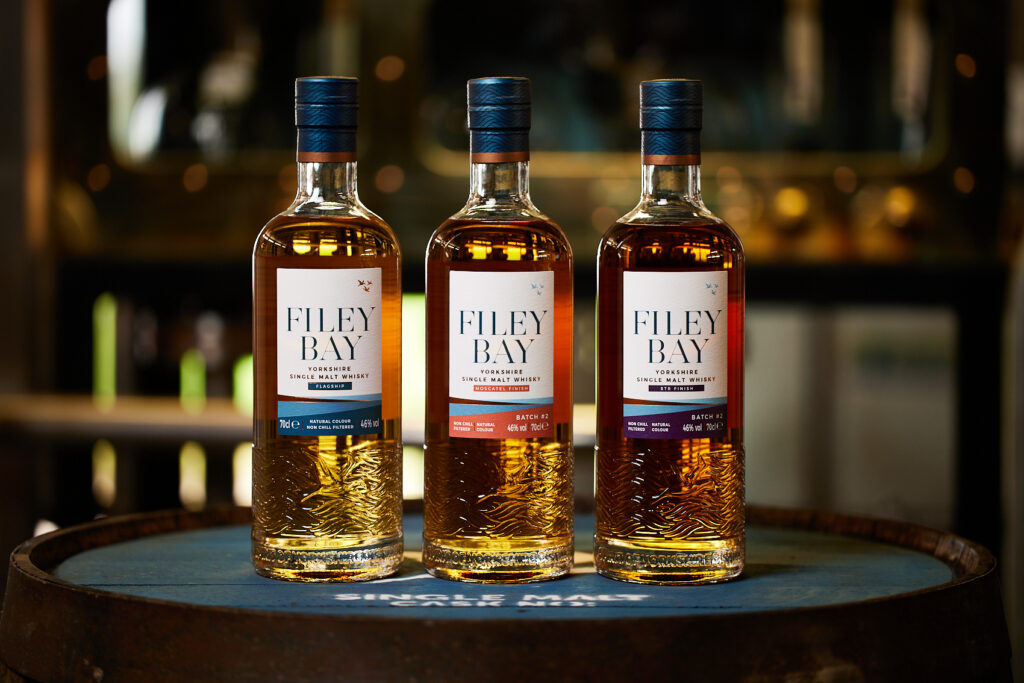
26 aug Rooted in the Land: How Filey Bay is Rewriting Whisky’s Connection to Nature
Filey Bay was born from a simple yet ambitious idea: to create a whisky deeply rooted in its coastal home. Sitting on land farmed for generations, the distillery had everything it needed — prime malting barley fields, a natural water source, and an agricultural heritage that prized stewardship over short-term gain. “We had the key ingredients right here,” says co-founder David Thompson. “Top malting barley land, our own water source, and a family history tied to this soil. The distillery became a natural extension of the farm — a way to bring lasting value back to it.” Regenerative farming wasn’t in the original blueprint, but as the team saw how soil health and biodiversity influenced both farming and flavour, it became an inseparable part of the vision. “Regeneration goes beyond sustainability,” Thompson explains. “It’s not just about maintaining the land; it’s about actively improving it for the future.”
Entrepeneurship and Risk
Choosing to invest as much in the land as in the whisky was a bold move. “Great whisky starts with excellent grain, and great grain comes from living soil,” says Thompson. But going regenerative meant overcoming scepticism from some growers and even fellow distilleries who worried about cost and complexity. Patience and pragmatism kept the project on track. While whisky-making is already a long game, early wins like limited releases and distillery visits helped sustain momentum without compromising the brand’s values.
Pioneering in whisky
Regenerative barley was uncharted territory for whisky. There was no manual — just observation, expert advice, and a willingness to learn from the land. “We had to be comfortable with uncertainty,” Thompson recalls. “Every season taught us something new.” Techniques like minimising soil disturbance, planting cover crops, and encouraging biodiversity through field margins are now standard practice on the farm. These methods yield barley with better starch and enzyme profiles, subtly enhancing flavour, texture, and fermentation. Inspiration came from outside the whisky world too — from regenerative growers, craft bakers, and cheesemakers who also see quality as the product of a responsible process.

Consumer connection
You won’t find “regenerative farming” listed as a tasting note, but it’s present in every glass. Customers experience it in the whisky’s purity, character, and consistency — qualities born of grain grown under the distillery’s own feet, distilled and matured under the guidance of industry greats like the late Jim Swan. “What we want people to take home,” says Thompson, “is that this isn’t just a drink — it’s a whisky with roots. It tells the story of our land, our coast, and our craft, shaped by generations but made with the future in mind.”
Measuring impact
Proving regeneration works means tracking everything from soil health and microbial life to water retention and biodiversity. The farm was among the first to receive carbon credits for soil management, and early results show stronger soils, more resilient ecosystems, and signs of carbon sequestration. While the impact on whisky is indirect, healthier barley leads to a cleaner, more expressive spirit — one you can taste even if it’s hard to see in lab reports.

Challenges and resilience
The hardest part? Unlearning industrial habits and accepting nature’s unpredictability. “You don’t get instant results,” Thompson admits. “It’s quiet, cumulative progress. Some years are harder than others, but the land always teaches you if you’re willing to listen.” Moments of doubt were inevitable, but the long-term gains — from resilient farmland to a stronger connection between land and liquid — proved worth it. Embracing nature’s variability, rather than trying to eliminate it, has become a defining part of the craft.
Leadership and legacy
At Filey Bay, innovation and environmental care go hand in hand. The culture is built on trust, shared purpose, and giving the team both freedom to experiment and responsibility to care for the land and each other. For entrepreneurs looking to blaze trails without a clear roadmap, Thompson’s advice is simple: “Start with your values, stay curious, and accept that progress isn’t linear. Surround yourself with people who believe in the mission and aren’t afraid of uncertainty.” Looking 10–20 years ahead, Filey Bay hopes to prove that regenerative farming works at scale — delivering better whisky, healthier soils, resilient communities, and an industry that values its connection to the land. “Too often, barley is treated as just another commodity,” says Thompson. “We want to show the industry that when you respect the grain and the place it comes from, everything changes.”




Geen reactie's